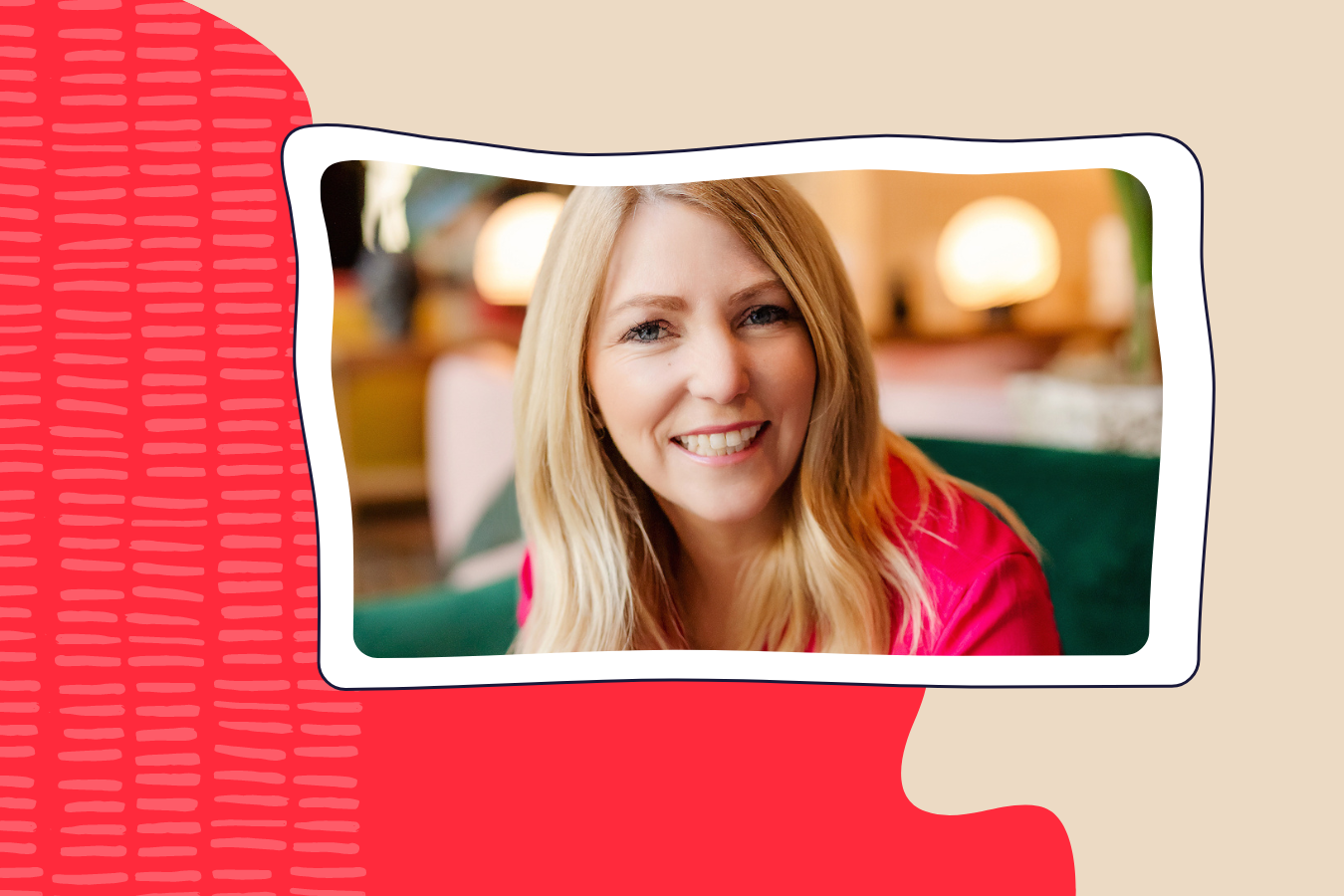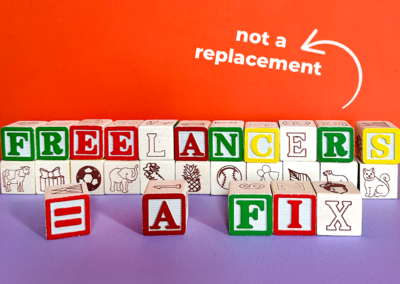Angie Moody is the the founder and CEO of Ruby Money, a year-round tax app that helps freelancers earn more and avoid costly tax mistakes. She launched her career and climbed the ladder at big tech and finance companies like Instagram and Capital One. She later discovered the need for Ruby Money as a solution for common freelance financial mistakes when she became a consultant and accidentally lost $12k in her first year.
Here she talks about that hard-learned lesson, how she turned her idea into reality, and advice for those who want to pursue entrepreneurship.
Can you tell us about the early days of your journey and what inspired you to start Ruby Money?
Well, it all started when I lost $12,000 during my first year as a consultant.
Let me back up a bit. In 2021, I left a senior leadership role at Meta. Like many mothers, I was burnt out and having an identity crisis. After 15+ years climbing the corporate ladder, I realized I didn’t want to continue on that path. During my time off, I took on a part-time role with a start-up as fractional head of product. I enjoyed the work immensely and started to envision a new path for myself working with early stage entrepreneurs.
At the end of that year, I received my first ever 1099, along with a massive surprise tax bill. I learned (too late) that I missed the opportunity to contribute to retirement and take other valuable tax deductions. In the end, I lost over $12,000 in profit. I felt ashamed and embarrassed. I started talking to other consultants, freelancers, and small business owners and realized that I was not alone. That’s when my product brain and my years of experience designing financial products kicked in. I knew I was in a unique position to help millions of women like me thrive (both professionally and financially) on their terms.
How did you identify and validate the need for a tax app specifically catering to freelancers? What market research and analysis went into that process?
When I started working on this idea, the “great resignation” was in full swing, and Upwork had just released their first Freelance Forward report. The report highlighted the explosive growth in professional, tech, and creative freelancers. It was clear that the way people worked was changing, and we were at an inflection point.
I personally interviewed over 75 new and experienced self-employed freelancers, from designers to coaches to nail artists. I spent over 1,000 hours just listening to people’s experiences, frustrations, and hacks to managing their self-employed finances. There was a lot of fear and uncertainty felt around managing the financial side of running a business of one, especially when it came to taxes. We started to wonder, “How might we eliminate the stress of paying taxes when you are self-employed?” We built a landing page and a waitlist sign-up. In less than a week hundreds of people were on the waitlist. This gave us the confidence to start building the first version of Ruby Money. Our initial product was very basic. The back-end was a spreadsheet, and we had weekly Zoom calls with our beta users to better understand their assumptions, use cases, and expectations. This early customer data really validated that the solution we were building was not only feasible, but would solve a major pain point people really cared about.
What were some of the biggest challenges you faced during the initial stages of Ruby Money, and how did you overcome them?
There are so many challenges that we’ve had to face since starting the company and still face today. One of the biggest was my own imposter syndrome and fear of failure. This led to a desire to want to plan, research, and perfect things. To help overcome this, I adopted Brené Brown’s practice of shipping the “shitty first draft” and gave myself really aggressive deadlines for completing them. Turns out they usually weren’t that shitty, and once I had a V1, it was easy to iterate.
The second challenge was learning how to sell. I enjoyed connecting with prospective users and investors to discuss the problem space and my vision for the company, but I struggled at the end to ask for the business or properly follow up. We learned that most of our beta users joined after five follow-up emails. Sending that many follow-ups felt super cringe-y to me. I spoke to a successful sales coach, and she told me, “When you feel like a used car salesman, you are probably just doing the bare minimum.” One thing that helped me a lot was automation. I now use Hubspot CRM to schedule follow-up sequences on my behalf.
What advice do you have for others considering non-traditional career paths and entrepreneurship?
I always wanted to start a company, but it never felt like the right time. I realized that there was never going to be a perfect time and that if this was something I wanted to do, I was going to have to make it a priority. A few things I recommend doing if you find yourself contemplating taking the leap are: get really clear on what your terms are. What does success look like FOR YOU? Literally, write them down and iterate them until they feel unique and authentic. There are so many different competing models of success out there, and it can be easy to just blindly adopt those models for yourself. But, you aren’t leaving the “moving sidewalk” of the corporate world just to get on someone else’s.
For me, I wanted to use my natural gifts and decade of experience in product design and personal finance to support women. I also wanted a career that allowed me to be super present for my children. Being clear on my terms makes it easier for me to not get wrapped up in the comparison game or get lured into things that won’t ultimately produce the results I want.
It’s also important to develop a community of people you can be vulnerable with and can hold you accountable. For me, this is a mix of fellow former bosses, peers, and entrepreneurs I’ve met along the way. This group knows my strengths and can both provide a morale boost and help me see things with more clear eyes.
Lastly, be prepared for a humbling, emotional, and incredibly rewarding journey. I’ve learned so much about myself the last two years. It’s been way harder than I ever imagined and also way more rewarding.
What is your long-term vision for Ruby Money and the freelancing industry as a whole? What do you see as key trends and opportunities within this space?
The world has been forever changed, and people (women especially) are rejecting the old models of work and are embracing entrepreneurship. Over 40% of Gen Z and Millennials had freelance income last year, and corporations are also turning more and more to freelancers and fractional workers, with 66% expecting to increase usage of independent talent over the next two years. Whether it’s finding a project on We Are Rosie or launching your course on Maven, everyone has the opportunity to become an entrepreneur.
This explosion in entrepreneurship is also leading to an explosion in demand for services and tools to enable solo business owners. Most of the incumbent tools and service providers cater to organizations with teams of people and a staff of accountants and HR folks. A new generation of tools and services, like Ruby Money, will be designed for the solo business owner and will be low-cost, offer powerful automation, and have almost zero learning curve.
Lastly, we’ve seen a change in our society’s view of self-employed work. Historically freelancers were viewed as inferior to their corporate counterparts. That has shifted, and it’s now viewed both as savvy and desirable to be a solopreneur.
What has been your proudest achievement with Ruby Money thus far?
For me, it’s hearing from our members that we’ve helped them build a stronger business. We’ve had users say how excited they are to pay their quarterly taxes with Ruby Money. If we can take something that used to create anxiety and stress and turn that into a delightful confidence-building moment, that’s it for me. That makes this all worth it.



